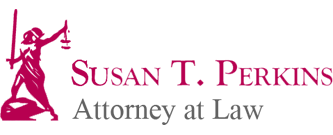Although the US has made many strides when it comes to gay rights, the country still has a long way to go. Connecticut is one of the most gay-friendly states. However, gay discrimination in Connecticut still happens.
Discrimination Lawsuits in Connecticut
Connecticut is a state that many people know for being gay-friendly. So it’s not surprising that the state was one of the first to pass a law that banned discrimination on the basis of sexual orientation. Although people expected the passage of the law to result in lawsuit after lawsuit, it has not had that effect. Instead, there have only been a few lawsuits. The bill passed in 1991. However, since then, there has only been an average of 47 cases each year. During the first year, people made 21 complaints. In 2007, people made 72 complaints.
Before you look at some of the types of cases, you should understand more about the law itself. The discrimination law prohibits an employer from discriminating against an employee based on sexual orientation. Any professional organization or association with state licensing cannot discriminate based on sexual orientation. Whether a person is homosexual or bisexual, an employer cannot treat an individual unfairly based on that information. Likewise, any type of sexual orientation discrimination is illegal in housing requests and credit requests. It is also illegal when it comes to the granting of state-issued items, like licenses and contracts.
Although the law applies to most of the state of Connecticut, there are a few exemptions. For example, it does not apply to churches, religious organizations, or religious skills. Also exempted are college ROTC programs and DCF. If you own a small apartment building and live on the premises, then you also might be exempt
Types of Gay Discrimination in Connecticut
There are several main types of gay discrimination in Connecticut. In general, people experience discrimination when it comes to the following issues:
- housing
- loans and other credit requests
- employment
- service
Although there are other types of discrimination, they are not very common. In most places, people often observe the most cases of discrimination occurring in the realm of employment. While other types of discrimination occur, employment discrimination is by far the most common. This is true of discrimination based on race, sex, and sexual orientation.
If you look at statistics from sexual orientation discrimination complaints filed between 1996 and 2001, then you can see that employment was the most frequent complaint. Out of 237 total complaints, a whopping 205 related to employment. When it came to service complaints, there were only 25. Housing discrimination resulted in four complaints and service complaints resulted in only one complaint. There were two complaints that didn’t fit any of the above categories.
Although discrimination based on sexual orientation does happen in the state, it is not common. At least, it is not common for individuals to file complaints about it. It is impossible to say with any certainty how frequently discrimination occurs in Connecticut. However, the statistics give you some insight into how common it is for individuals to take legal action against the crime.
What Happens in Court?
Sexual orientation complaints go through the Connecticut Commission on Human Rights and Opportunities. When the organization receives them, they decide which complaints deserve to be considered. If the complaint seems frivolous or does not apply to the law, then the commission dismisses it. In a similar vein, they might dismiss it if it seems unlikely that investigation will find a reasonable cause for discrimination.
If the commission dismisses the complaint, then the individual can ask the commission to reconsider. If they refuse, then the individual can appeal to the Superior Court.
Most of the complaints result in the dismissal of the complaint. However, there are some complaints that make it further in court. It is common for cases that don’t face dismissal to end up with a settlement agreement. In these cases, the plaintiff usually does not want to publicize the incident and go to court. To prevent that from happening, they agree to pay you a fee.
Do You Need a Lawyer?
If you are a victim of gay discrimination in Connecticut, then you should take action. Although there aren’t many cases of gay discrimination in the state, it does happen. You don’t need to sit back and take the unfair treatment. Instead, you can be proactive and bring an end to it. All of the previous cases of Connecticut discrimination sent a message that discrimination will not be tolerated. By bringing your case to the court’s attention, you can prevent discrimination from happening to others.
To file a complaint, you need to submit your complaint to the Connecticut Commission on Human Rights and Opportunities. You do not need to have a lawyer. However, it could help out your case. With so many dismissed cases, it is likely that yours will have the same fate. To avoid dismissal, you may want to enlist the help of a lawyer.

 CALL US NOW
CALL US NOW







